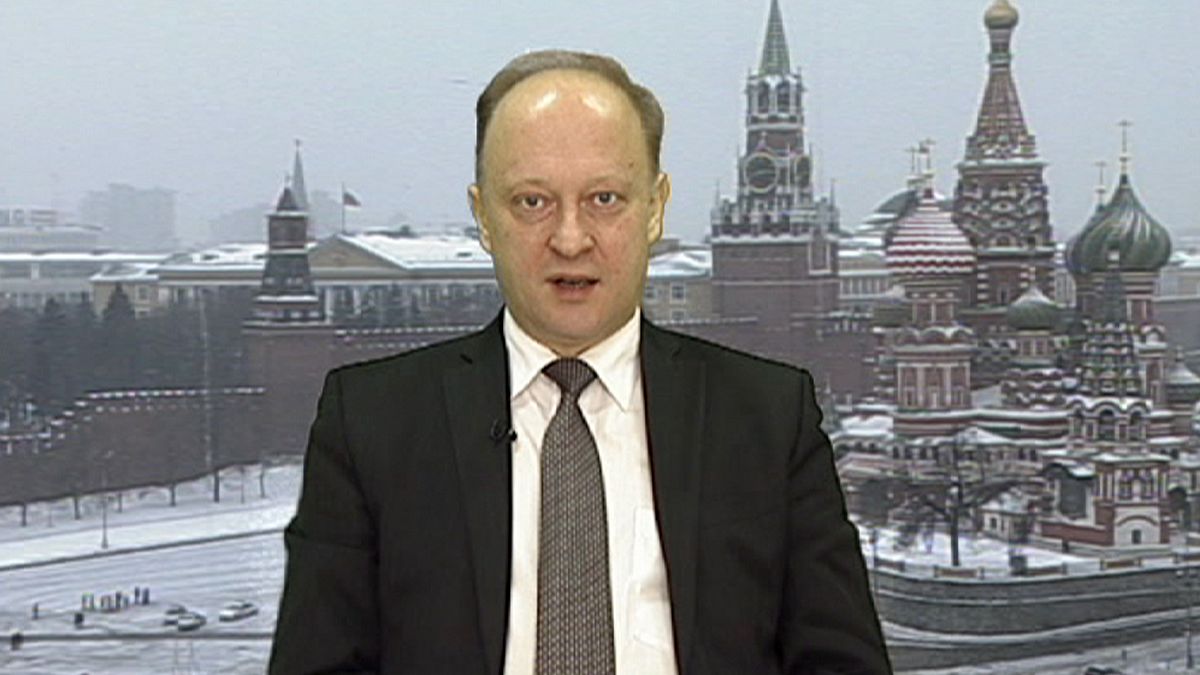Natalia Marshalkovich, euronews: In Russia, as in other parts of the world, some people eagerly followed Barack Obama’s State of the Union address. Among them was Andrei Kortunov, head of the Russian Council on International Affairs and President of the “New Eurasia” Fund.
The US leader for the first time commented on the events in Ukraine. Until now the most active players on this field, for obvious reasons, were Russia and Europe. But now it seems that America wants to play a more important role in resolving this crisis?
Andrei Kortunov : It is quite easy to understand the reluctance of the United States to intervene actively in the crisis. They have too many other problems. Too many other things to worry about in current foreign affairs. Moreover Ukraine is a European country. There’s a certain tacit division of labour between the US and the EU and this problem should be a concern of European allies of the United States. However it is clear that the United States as a global leader can not completely ignore the issue of Ukraine and therefore it is natural that is his message. President Obama, albeit in a rather general fashion, outlined the U.S. position on this issue.
euronews : You speak about many concerns in American foreign policy. Let’s talk about this . Here’s what Obama said about Iran : “For the sake of our national security we must give diplomacy a chance to succeed.” In Russia’s view , what is it? A constructive approach to the problem? Or maybe is it that realism has prevailed in the White House?
AK: “I think this statement is intended primarily for the opposition in the United States. First of all to conservative Republicans in Congress, who believe that Obama’s administration has made unilateral concessions and showed weakness. This administration does not want to continue the sanctions regime, which generally, in some way, betrays the interests of the U.S. and its allies, especially Israel, in the Middle East. But on the other hand, we remember that just recently some experts seriously discussed the possibility of military strikes against nuclear facilities in Iran by Israel or the U.S. But Obama obviously preferred the path of diplomacy. He chose to compromise. We know that now Iranian assets are being unfrozen in U.S. banks. That means it is not just rhetoric, not just words . This formulation reflects the very serious, fundamental change in U.S. policy toward Iran.
euronews : Now Syria. It was mentioned twice in this speech. The US attitude toward Syria last summer was quite belligerent. In your opinion, did America’s attitude toward Syria really change?
AK: “Let’s remember the events of last summer. The democrat administration almost moved to planning a military strike against the regime of Bashar al-Assad. But in the autumn, in September we had a breakthrough. This was due to the ability of the U.S. and Russia to find common ground and a common position on the chemical weapons issue.”


